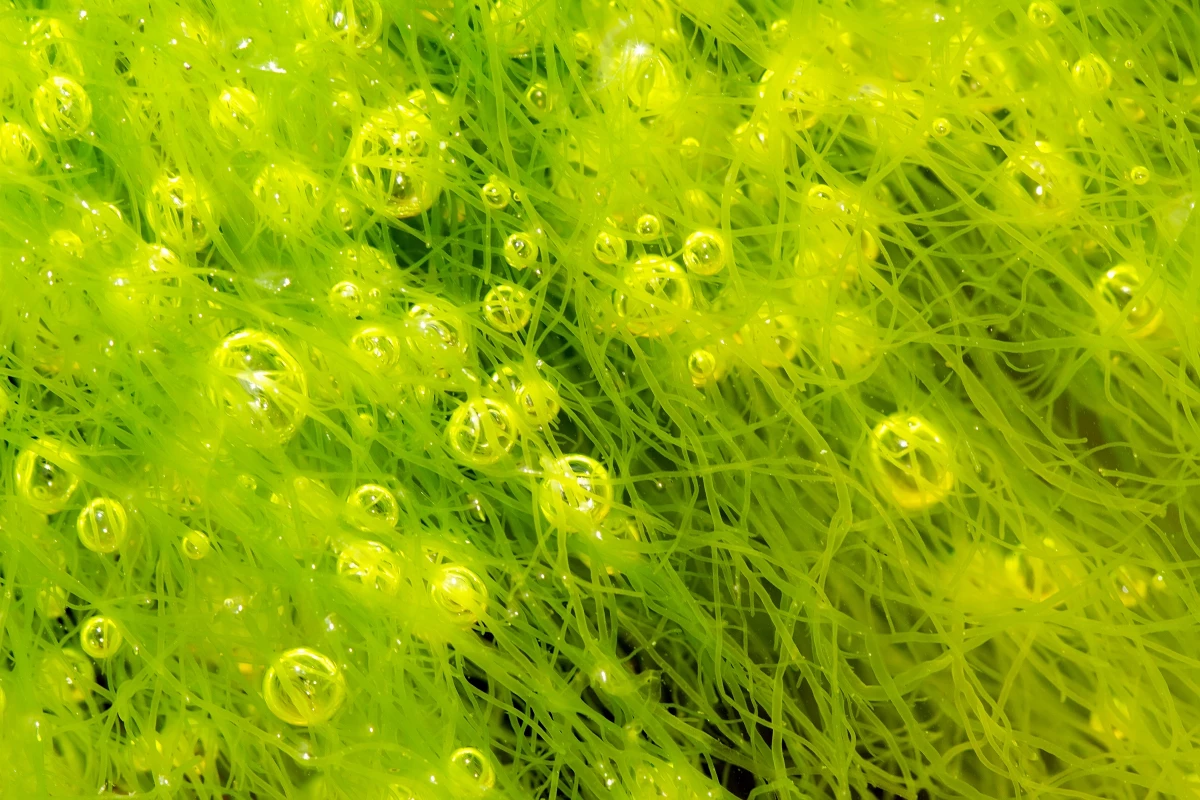Presently, in order to purify wastewater, antibacterial chemicals and ultraviolet light are among the measures commonly used. According to a new international study, however, the utilization of algae may be a more eco-friendly and energy-efficient alternative, resulting in water that's clean enough for use in aquaculture.
It was already known that algae breaks down and feeds upon waterborne compounds such as phosphorous, nitrogen, carbon and heavy metals. Additionally, as algae absorbs nutrients and blocks sunlight in the water, it outcompetes microorganisms such as harmful bacteria, causing them to starve.
With these factors in mind, scientists from India's Shoolini University collected Pseudochlorella pringsheimii algae from a natural pond, then cultivated it in tanks of raw urban wastewater that contained heavy metal pollutants and antibiotic-resistant bacteria. After 14 days, it was found that the heavy metal levels had dropped drastically, and the bacteria were almost completely eliminated.
Once centrifugal force had been utilized to remove the algae, both treated and untreated wastewater was used to raise separate batches of sucker fish. Although no fish survived in the untreated water, 84 percent of them survived in the treated water – what's more, their body weight increased by 47 percent over a 10-day period.
And as a side benefit, it was determined that lipids produced by the harvested algae could be processed into biofuel.
A paper on the research – which was led by Dr. Pankaj Kumar Chauhan – has been published in the journal Science of the Total Environment. Scientists at Texas-based Rice University and the Desert Research Institute in Las Vegas have also used algae to remove pollutants from wastewater.
Source: Shoolini University




